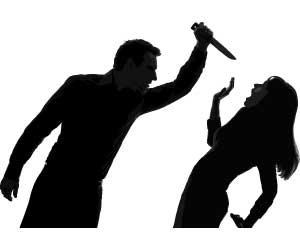The crime generates human beings and is a common sense that does not know the harm or criminality, and contribute to the surrounding environment in the formation of the personality and influence it, and may be some people to the negative impact by the environment surrounding them, making them deviate towards the behavior of non-good, To Sui man, leading them to crimes. What is the definition of crime? What kind? Definition Crime Crime is defined as any deviation from the course of societal standards which are characterized by a high degree of quality, algebraic and kidney; that means that the crime can only be in the case of a value respected by the group and is aggressive by those who respect (2) The concept of crime also varies according to the perspective through which it is viewed, including: [3] ] Crime in Islamic law: p P Mawardi as a legitimate crime prohibited forbade God to do either with or tazir, and is prohibited action is God forbade him, or not work is ordered. Crime is a legal act that is a result of criminal will, and the law establishes a penalty or a preventive action. Social and psychological crime: It is a work that breaks through the moral foundations established by the group, and has made the community to be officially sanctioned. The definition of the offender is: the adult adult who has committed a harmful act under a particular law, resulting in specific criminal penalties in the same law. [3] Interpretation of the commission of the crime The causes of the crime The crime of individuals is attributable to many reasons, Religious Dignity: Religious laws and prohibitions that prohibit crimes are a powerful deterrent to individuals. [4] The weakness of moral reasoning: moral reasoning is an important pillar of social reform. Therefore, all educational institutions must exercise their role in inculcating children's values and ethics. [7] The prevalence of criminal behavior. [5] The corrupt environment: where the human being is affected around him whether they are good or corrupt. [6] Unemployment and difficult economic conditions: Many young people commit crimes to collect money illegally because of their need. And the circulation of images of criminality and terrorism: 70% of the murders are due to the abuse of the individual drug, according to a study by the Tunisian Society of Criminology. [8] The American study also published in the journal of behavior and criminal justice that 93% of criminals have passed the history of addiction On drugs and alcohol [9] Explosive theories of crime The sociologists interpreted the criminal behavior of man as the result of the influence of the surrounding society and of a number of factors related to it culturally and socially. As a result, many theories that discuss criminal behavior have emerged in many ways: The theory of stigmatization: Edwin Lemert, a sociologist and anthropologist, [11] is the most prominent proponent of this theory, and assumes that people act as criminal behavior as a result of the reactions of society surrounding them, Phase The state of deviation is as follows: Primary Deviation: The initial behavior of the person to test the reaction of the community towards him. The reaction of society: which is in the form of certain penalties. Frequency of the initial deviation: with the increase of the amount of deviation or percentage of the initial deviation. The community takes an official reaction: These responses often come in the form of the stigmatization of the deviant person. Increase the amount of direct deviation: It comes in response to the attitude of society towards him as a criminal. The perverse acceptance of the stigmatization described here: The deviant here tries to adapt to his new status as an outcast. Differential Theory Theory: A theory by the American scholar Edwin Sutherland, which states that criminal behavior is not inherited, not moral or moral behavior, but an acquired behavior that the individual learns as any behavior Another is through the surrounding environment, where the focus of this theory is that the difference between the practices of individuals is based mainly on the quality of society and individuals who surround and mingle with them. The theory of anomie: French sociologist Emile Durkheim is the first to refer to anomie, a term that refers to the situation in which social norms disappear and the rules and foundations of human behavior are absent. Durkheim attributes criminality to the concept of social immorality and imbalance of behavior, the disintegration of the principles governing the individual's life and the concept of social solidarity. Types of crime The crimes were divided into several sections based on the following bases: The type of motive: The crimes are divided according to the type of motive which led to the occurrence of four sections, namely: [1] Political crimes: These are crimes related to the regime or the rulers as judges, Is defined as a crime that involves an attack on the regime or its figures as rulers or leaders and holders of political thought because of their political views. [12] Sexual offenses: sexual behavior that is prohibited by the law of the state and is different from sexual abuse and exploitation . It is a multifaceted crime, not only in one aspect, but in the psychological, economic, religious and social aspects

Congratulations @ameur1! You have received a personal award!
Click on the badge to view your Board of Honor.
Congratulations @ameur1! You received a personal award!
You can view your badges on your Steem Board and compare to others on the Steem Ranking
Do not miss the last post from @steemitboard:
Vote for @Steemitboard as a witness to get one more award and increased upvotes!